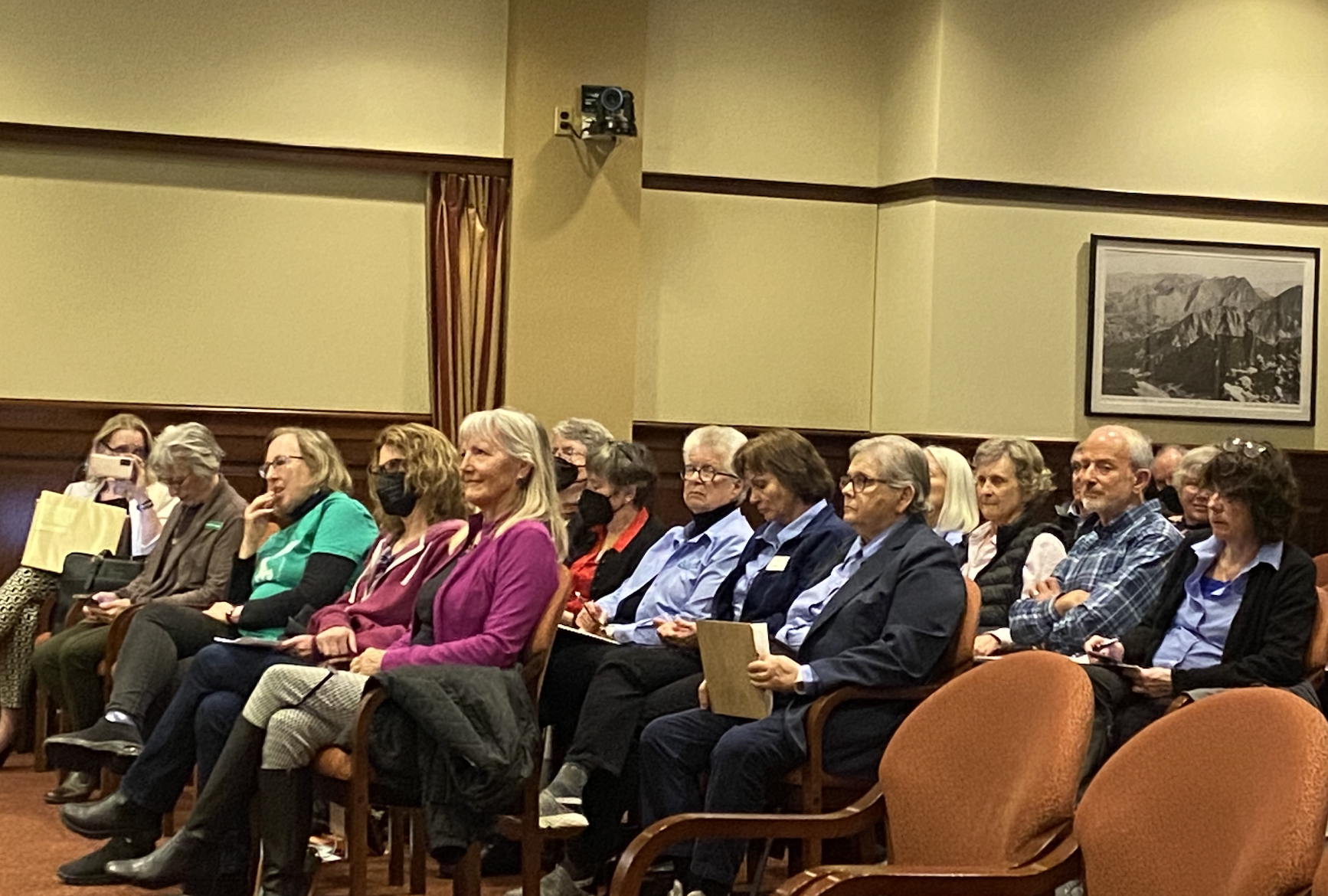Updated March 15, 10:03 a.m. to correct Rep. Tony Wisniewski’s district.
An education savings accounts (ESA) proposal is headed to the Senate floor, after a 6-3 vote in the Senate Education Committee. Tuesday’s action is the latest development in the statewide school choice debate.
Senate Bill 1161 would create a $12 million tuition grants program under the umbrella of Empowering Parents, an existing $30 million micro-grant program for public school families. Under the pilot program, families of up to 2,000 eligible students could receive $6,000 to pay tuition at private schools or microschools start-up costs. Applicants would be prioritized on an income basis.
The program would sunset after five years, without additional legislative action.
Over 60 people signed up to testify Tuesday afternoon — six in support of SB 1161, and 58 opposed. But committee Chairman Sen. Dave Lent, R-Idaho Falls, cut off public testimony after less than an hour (the senators had to be on the floor at 3:30 p.m.). The committee heard fewer than 20 testimonies.

Many wielded the same criticisms that have been heard about other ESA proposals this session — chiefly, the concern that ESAs will divert funding from public education.
But Idaho Education Association Executive Director Paul Stark came armed with some history.
When the Empowering Parents grant program was established by the Legislature in 2022, the IEA supported the legislation after being guaranteed by lawmakers, the governor’s office and the State Board of Education that the program wouldn’t create a “back door” for public money to enter the private education system.
Now, he said, those same lawmakers are doubling back on their promises. (Sen. Lori Den Hartog, R-Meridian, and Rep. Wendy Horman, R-Idaho Falls, co-sponsored the 2022 Empowering Parents bill and are co-sponsoring the latest ESA attempt, along with Sen. Chuck Winder, R-Boise).
Sen. Janie Ward-Engelking, D-Boise, agreed with Stark. She sat on the Senate committee in 2022 when Empowering Parents was approved.
“We were assured that was not the case,” Ward-Engelking responded. “And yet less than a year from the point that we started … we’re here trying to put private tuition into this (program),” said Ward-Engelking.
SB 1161 passed out of committee on a 6-3 vote; Lent sided with the two committee Democrats. It now heads to the Senate floor.
Lawmakers reject a second ESA proposal
Another school choice bill failed out of the House Education Committee Tuesday morning — House Bill 289 was Rep. Lance Clow’s plan to establish an ESA program.
Named the Idaho Education Opportunity Program, the bill would funnel $6,975 into accounts for an estimated 2,000 students to pay tuition at accredited private schools. Clow, R-Twin Falls, pegged the initial cost of the program at $17.5 million.
Like Senate Bill 1038, an ESA bill that died in the Senate earlier in the session, HB 289 would split the funding between public and private schools — 80% ($6,975) of the per-student dedication would go into the student’s individual account, and 20% would remain with the student’s original school district or charter.
Unlike SB 1038, Clow’s bill would prioritize students who spent at least 90 days in a public school during the previous academic year — a check to prevent enrolled private school students from participating in the program. HB 289 would also prioritize applicants with an adjusted gross income below $70,000.
And Clow’s plan attempted to curb one major criticism of SB 1038 — a lack of accountability. The program would have required participating students to take a nationally normed achievement test, and prove to the State Department of Education that they performed at grade level, or achieved one year of academic growth.
Tuesday’s public testimony hearing brought in more opponents than supporters.
Representatives from Idaho’s leading public education organizations testified against the bill, calling out the Legislature’s constitutional responsibility to provide a free system of public education.
On a record $1 billion school election day (47 of 115 school districts have a bond or levy on the March 14 ballot) public school advocates said lawmakers haven’t done enough to meet that obligation.
“They need the money so desperately that they’re having to ask their communities to tax themselves,” said Paul Stark, Executive Director for the Idaho Education Association. “Until the Legislature meets its constitutional mandate…we urge you not to support this bill, and others like it.”
And before voting against HB 289, Rep. Dan Garner echoed Stark’s comment.
“I’m not sure that we can sidestep our constitutional reality by just throwing money to a parent, or to private education,” said Garner, R-Clifton.
The committee voted 9-7 to hold the bill in committee.
Voters could see school choice advisory question
Rep. Lori McCann wants voters to weigh in on Idaho’s ESA/voucher debate.
The Lewiston lawmaker brought a proposal to the House Education Committee that would place an advisory question on the November 2024 ballot, giving voters the chance to approve or disapprove of sending public tax dollars to private education.
According to McCann’s initial proposal, the question would read: “Should the State of Idaho, the Idaho Legislature, or any state agency divert public tax dollars to private K-12 schools, including private religious schools, and for-profit schools?”
McCann worked with the Secretary of State, the governor’s office and other legislators to develop the question.
But Reps. Tony Wisniewski, R-Post Falls, and Barbara Ehardt, R-Idaho Falls, said the word “divert” in the question suggests bias.
The committee sent the bill back to McCann for a rewrite, based on potentially problematic language.
Facing a time crunch, McCann said she’ll rewrite the question Tuesday, and hopes to quickly get the bill back in front of the committee.
